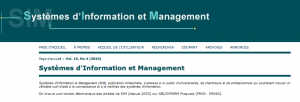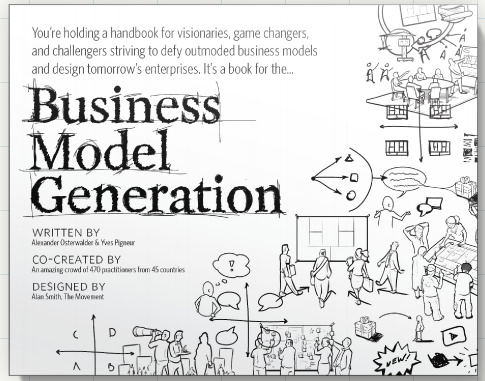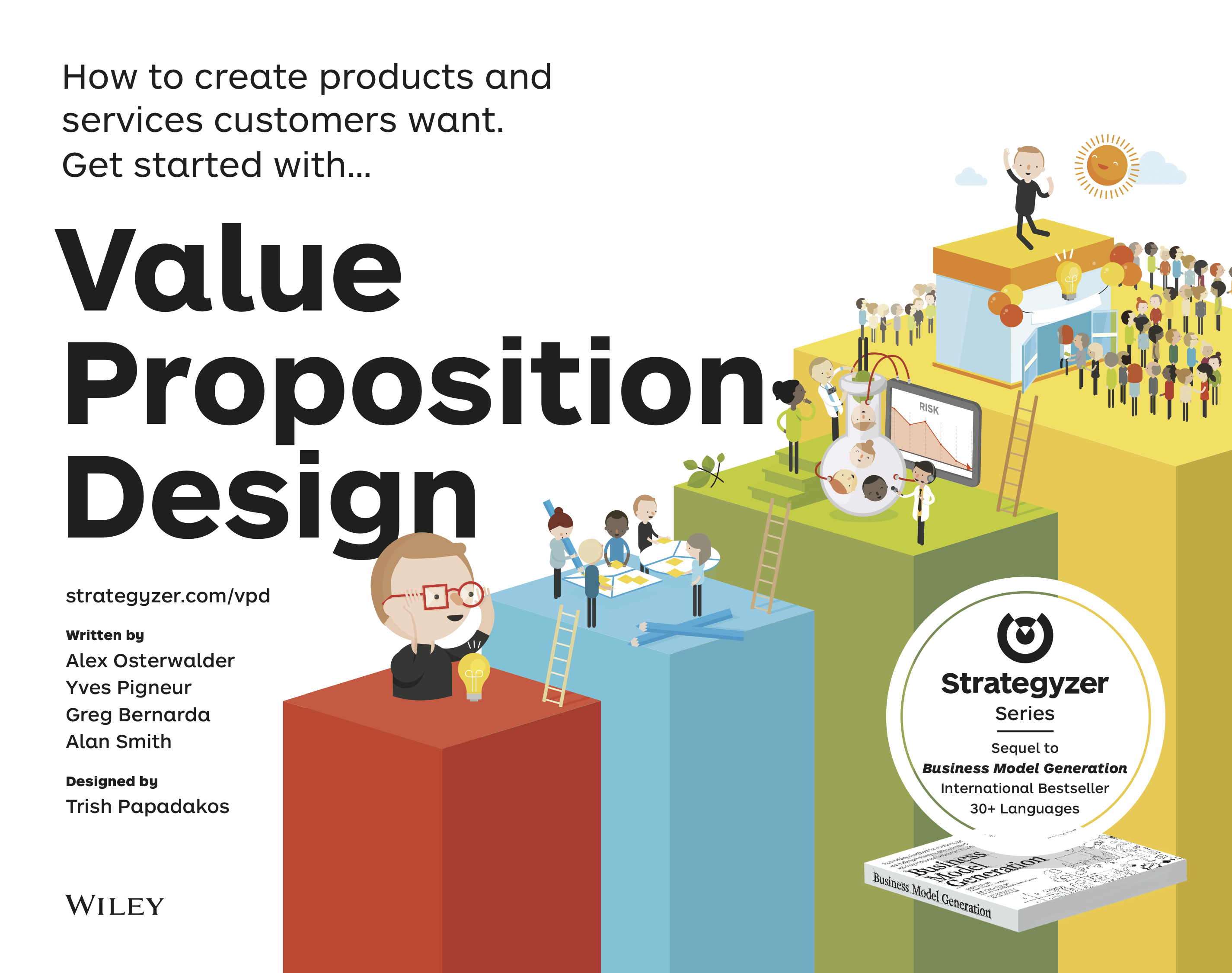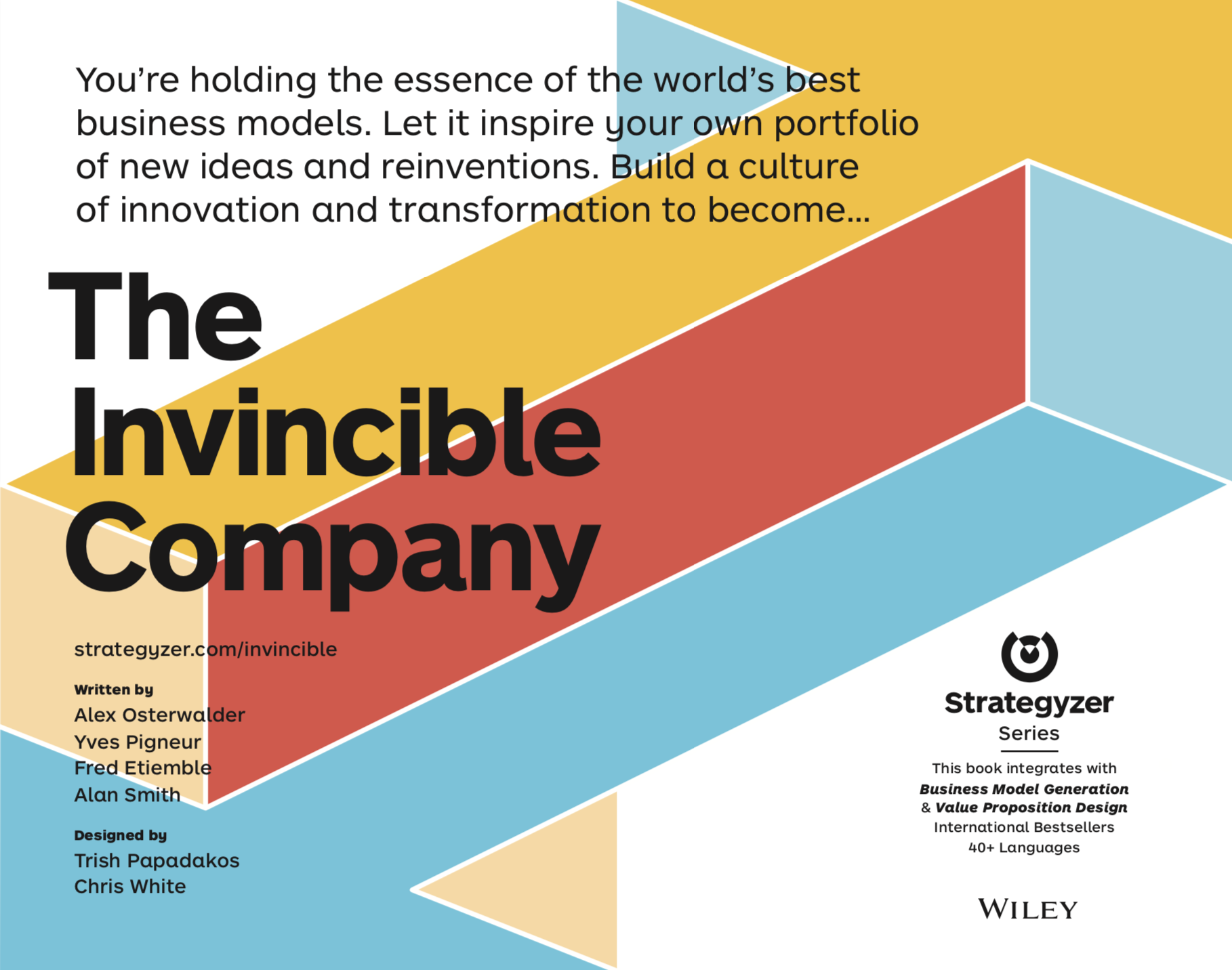SIM 18(3)
Systèmes d’information et Management, Vol. 18, No 3,
éditée par les Editions ESKA
avec le soutien de l’AIM



 ARTICLES DE RECHERCHE
ARTICLES DE RECHERCHE
Comment concilier marchand et non-marchand : une taxonomie empirique des comportements stratégiques des SSLL
Khaireddine Mouakhar & Albéric Tellier
Evaluation de l’innovation des logiciels open source
Nordine Benkeltoum
L’appréciation de l’innovation dans le secteur du logiciel est une problématique contemporaine qui a pourtant reçu une attention académique limitée. De ce fait, la littérature présente un manque de critères pour mesurer l’innovation des logiciels. Sur un fond de controverse théorique et pratique sur le terrain de l’open source, cet article évalue l’innovation des logiciels libres. Sur la base de près de 500 études de cas et avec la collaboration de 125 experts de l’industrie, des services et de la recherche, il offre une typologie de l’innovation s’appuyant sur la notion de valeur ajoutée fonctionnelle. Il procure également un cadre pour la modélisation de l’innovation qui articule les principales approches de l’évaluation. En montrant les limites des métriques traditionnelles de l’économie et du management de l’innovation, cette recherche ouvre la voie à une nouvelle manière d’aborder la mesure de l’innovation en optant pour une approche spécifique à chaque secteur d’activité.
The impact of Software Process Maturity on Software Project Performance: The Contingent Role of Software Development Risk
Dany Di Tullio & Bouchaïb Bahli
Despite growing efforts to improve software development processes, recurring concerns about software project performance remain largely present. The rate of software development project failure rate has been routinely documented in information systems (IS) research (Wallace, 2004; El-Masry and Rivard, 2010). The management of software development projects is often marked by inadequate planning, a poor grasp of the overall development process, and no clear management framework, even as the focus in software development shifts from a technology perspective to a more process-centric view (Slaughter, 2006). To address such concerns few CMM-based studies have examined the benefits and direct impact of software process maturity on software project performance but with mixed results. The present paper attempts to systematically examine the contingent role of software development risk on the impact of software process maturity level on software project performance. Guided by risk-based perspective in Software Engineering and CMM-based framework, an exploratory model was developed and tested. The premise of this paper is that software development risk plays a contingent role in the relationship between software process maturity and software project performance. Drawing on a sample of 107 organizations that have undergone official CMM appraisals, the results of partial least squares analysis of the data reveal initial evidence that (1) a positive effect of software process maturity level on software project performance while underscoring the negative effect of software development risk on software project performance, and (2) more importantly, the findings show that software development risk plays a contingent role software process maturity level on software project performance. For researchers, the integration of software development risk can provide a much needed linkage in the three fundamental constructs of CMM. From a managerial perspective, in order to foster a better software project performance, IS project leaders and managers should strongly emphasize devising effective software development risk assessment since a variation of this construct’s level may strengthen or weaken the relationship between software development process maturity and software project performance.
The moderating effect of gender on continuance intention for mobile Internet services (MIS
Anis Khedhaouria, Adel Beldi & Nassim Belbaly





